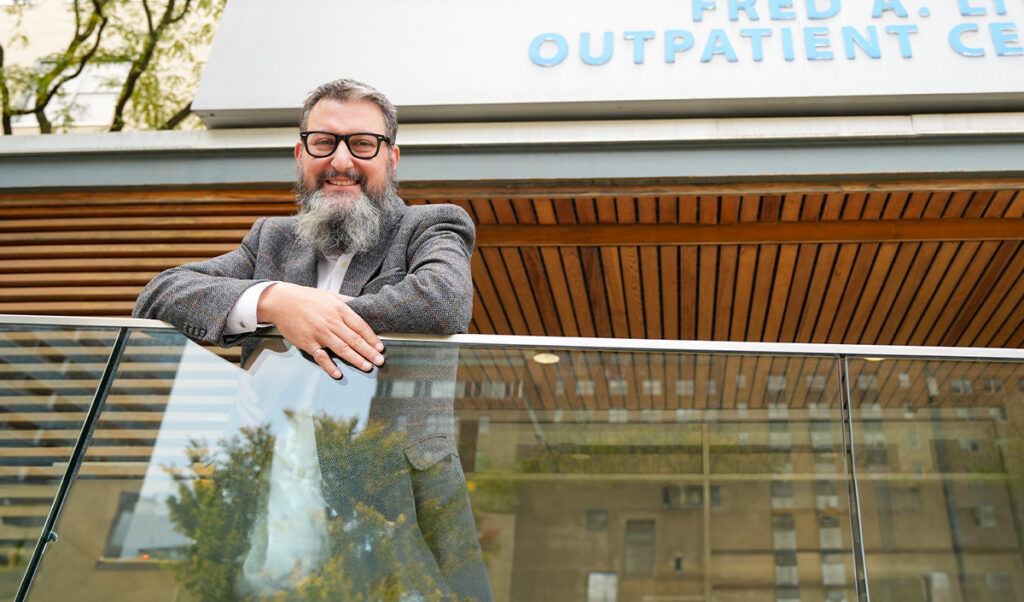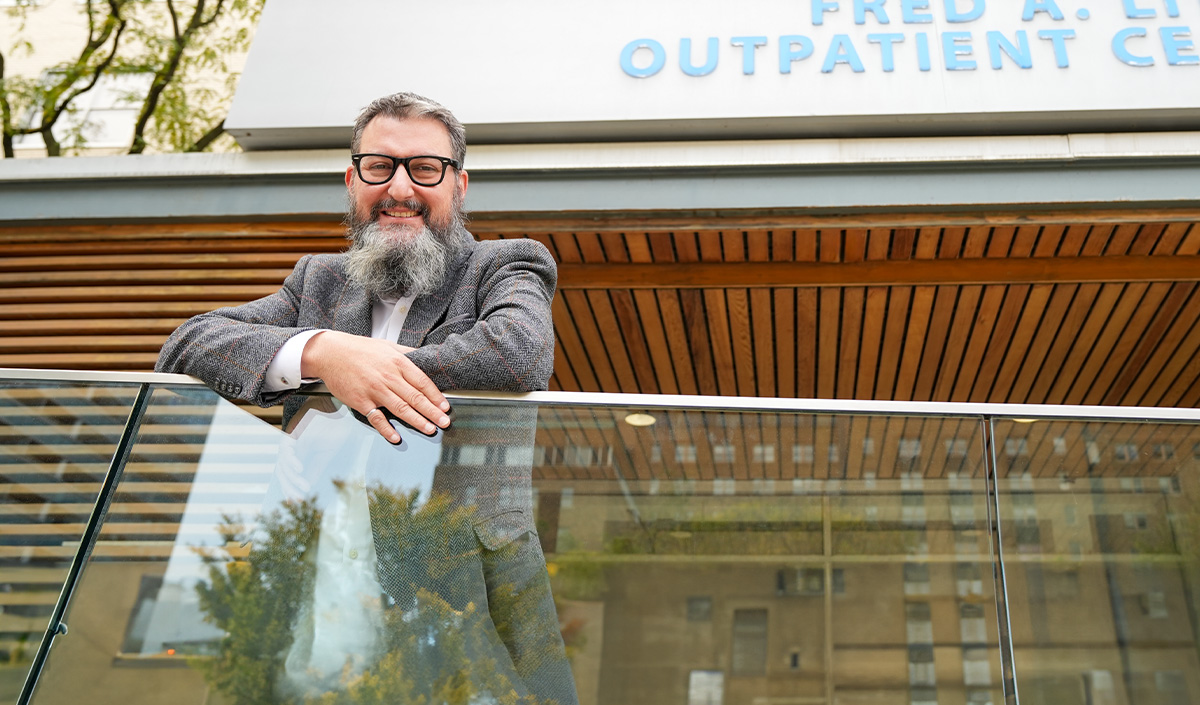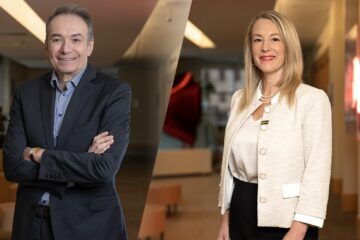Dr. Alex Mihailidis: Pushing Research Forward

After a devastating injury left Dr. Alex Mihailidis in the hospital for four months, the senior scientist, the Barbara G. Stymiest Research Chair in Rehab Technology at the University of Toronto and Toronto Rehab-UHN, has committed to bringing researchers and clinicians together.
Though he didn’t know it at the time, on August 31, 2019, Dr. Alex Mihailidis’s life would change forever. He and his family had been up at his cottage in northern Ontario, something they typically did for the Labour Day weekend, when his 8-year-old son decided to wander the nearby paths and trials with friends. When he heard yelling and went to see what had happened, he saw his son stuck on a ledge up on a cliff.
Mihailidis started climbing, aware that his son was starting to panic. He got to a place where he helped his son to safety but then the ledge that he himself was standing on gave out. Mihailidis fell 30 feet, suffering serious injuries including broken vertebrae and a spinal cord injury, a broken pelvis and a perforated bladder. He ended up spending four months in hospital.
“I UNDERSTOOD AND LEARNED VERY QUICKLY WHAT A POOR JOB WE WERE DOING AS SCIENTISTS IN TERMS OF TRANSLATING OUR RESEARCH INTO KNOWLEDGE THAT COULD BE USED BY CLINICIANS.”
Three of those months were spent at Lyndhurst, one of Toronto Rehab’s sites, where Mihailidis himself had spent years researching how technology such as robotics and artificial intelligence can support older adults in their homes. Suddenly, in a matter of weeks, Mihailidis had gone from a researcher to a patient, and a different kind of pain point quickly started to present itself.
“I understood and learned very quickly what a poor job we were doing as scientists in terms of translating our research into knowledge that could be used by clinicians ― and letting those clinicians know we’re there doing research,” Mihailidis says. He shares a story of how, after questioning why his picture was on the wall, his physiotherapist was surprised to hear that research was happening at the facility.
“The fact my physiotherapist didn’t realize all the great research that happens at Toronto Rehab, Lyndhurst and all the other sites struck me … being a scientist, and one of those who probably wasn’t doing a great job in terms of translating our science into practical outcomes.”
Despite that disconnect between research and real life, Mihailidis is quick to advocate for the quality of work that happens at Toronto Rehab. “It’s the best rehab hospital not just in Toronto or Canada but the world,” he says. “I’ve seen lots of rehab facilities, and nothing compares to what we do here in terms of the research, science and facilities we have, and the outstanding people we have working here.”
Since he left Lyndhurst, his road to recovery has been long and has had its challenges, but Mihailidis has put everything he’s learned into making sure there’s a symbiosis between researchers and clinicians. “That’s what I’ve rededicated myself and my research to doing,” he continues. “Ensuring that knowledge translation is part of everything that I do.”
Naturally, the injuries came as a powerfully personal learning experience. “Don’t take anything for granted. Things can change in a heartbeat, and you can very quickly find yourself in a position that you’d never thought you would find yourself in.”
As Mihailidis continues his work and research continues to develop, he talks about the struggles of funding and the importance of donors. “Research funding in Canada and around the world is tough to get,” he explains. “Sometimes it’s almost impossible, especially for our junior scientists and early-career researchers.”
Mihailidis shares how it can take up to three years to get a research grant for a project, by which point the technology or project may no longer be leading-edge. “Support from donors is critical because it helps us get the funding we need, get it quickly and allows us to stay at that cutting edge.”
INTERVIEW BY MARC CASTALDO



















































































